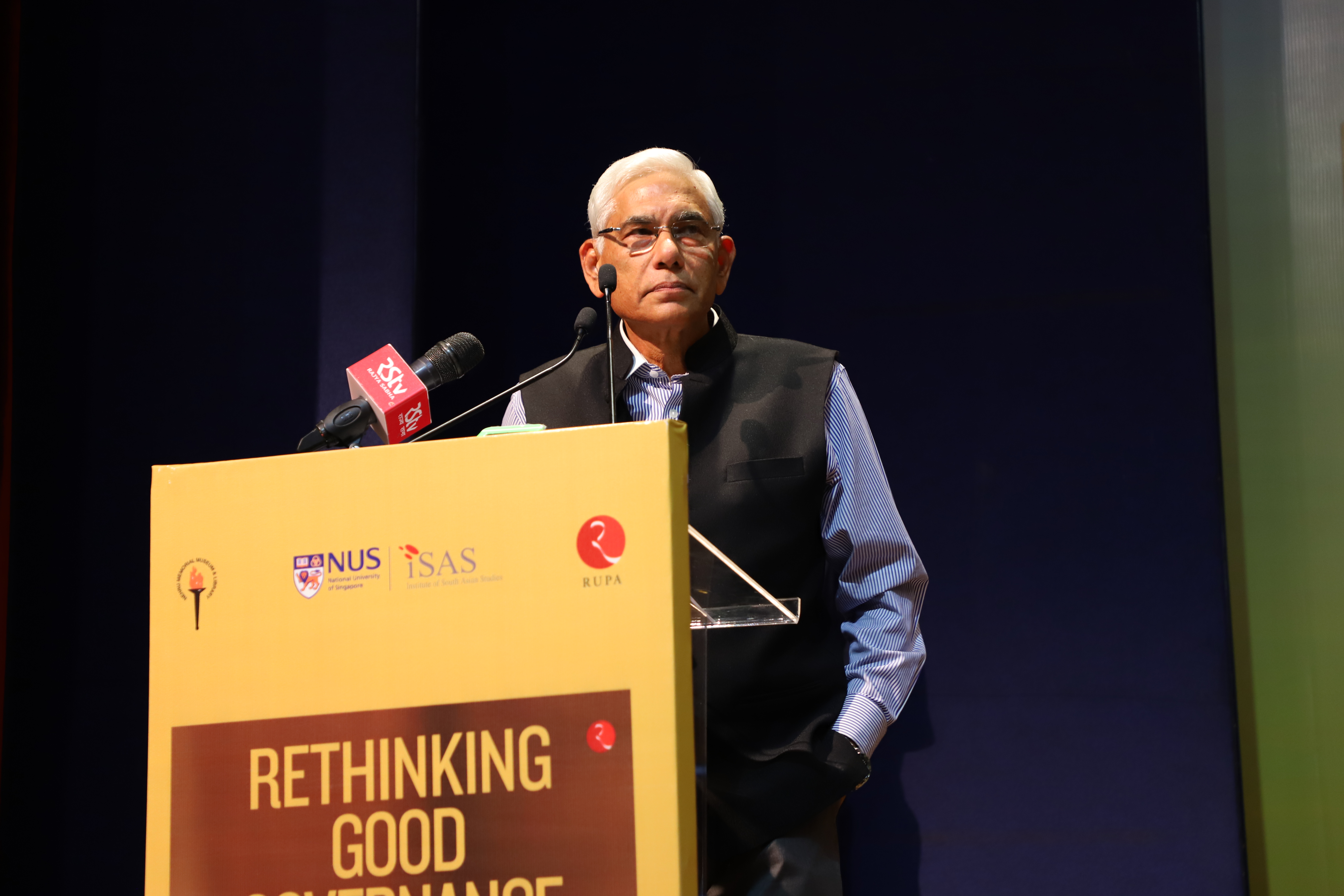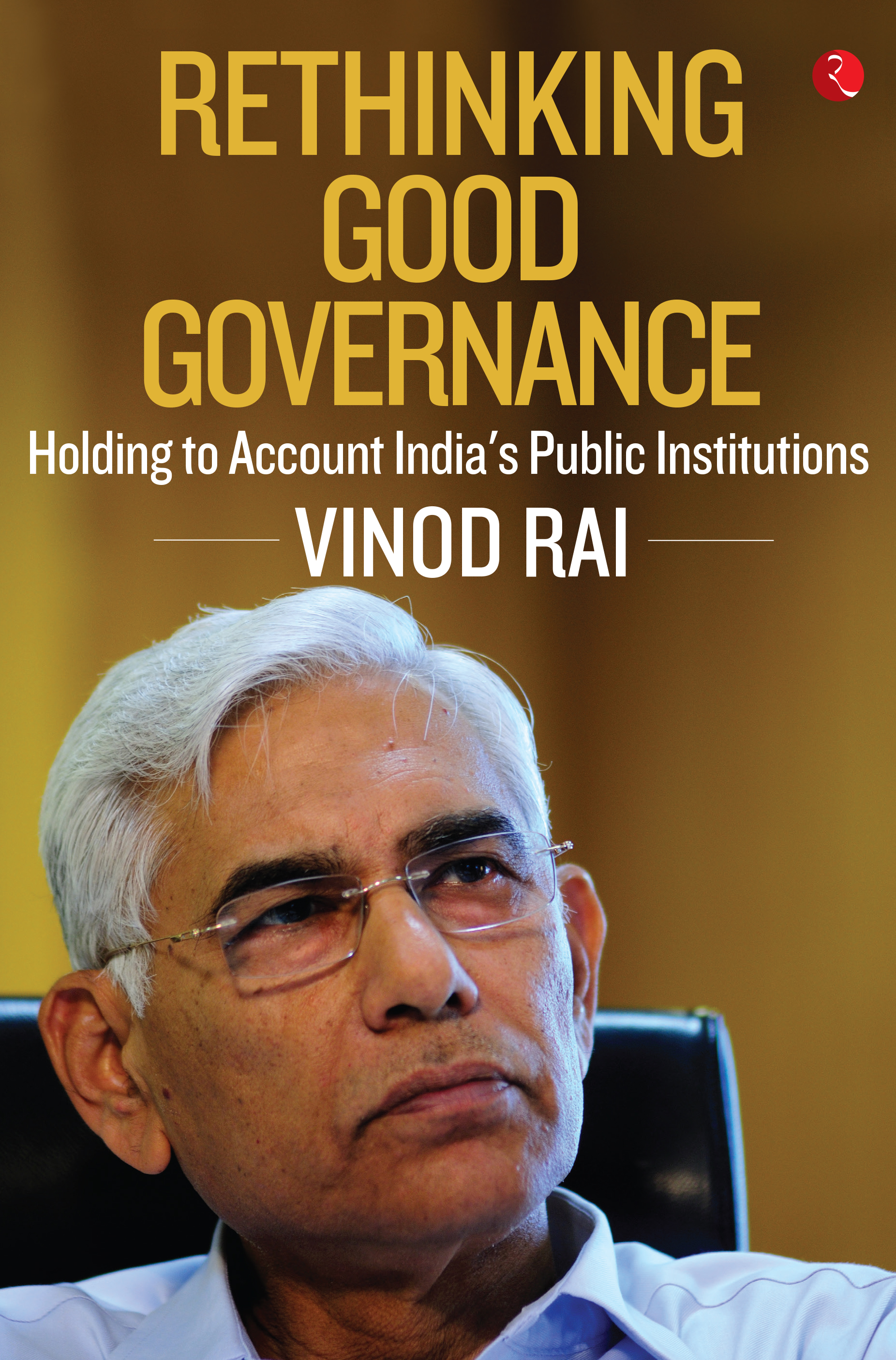Will The Parliament Of India Emerge as the Main Pillar of Democracy?

Public institutions support good governance, which, in turn, promotes sustainable economic development and, thereby, nurtures the welfare of the people. The vital bond between a people and its government is that of trust, and these public institutions help maintain that trust. They serve as the pillars supporting the foundation of a robust and vibrant democracy.
In Rethinking Good Governance, Vinod Rai highlights the strength of each of these pillars and analyses the circumstances that may have led to their weakening, resulting in the foundations of our democratic fabric being somewhat shaken.
The following is an excerpt from the book where the author talks about ‘A NEW LOW IN PARLIAMENTARY DECORUM’
‘The Parliament has a majesty and sanctity of its own. It has a written and unwritten code for its members and others to conduct themselves. Any infraction of such prescribed behaviour can attract breach of privilege of the Parliament and hence result in serious consequences for a non-member. There are also repeated directions coming from the government for officials to show due deference to parliamentarians. There is a long list of ‘dos and don’ts’: for example, how an MP should be received and dealt with if he were to visit the office of a bureaucrat. It requires that the officer attend to him or his calls with priority, stand up and receive him as well as see him off, and ensure that the issue he desires to discuss is promptly addressed. Similar priority treatment has to be accorded to parliamentarians at airports by airlines, railways and such other agencies.’
‘There is also a reciprocal side to the privilege claimed by parliamentarians, which imposes certain obligations on them. They, however, appear to be rather disdainful of any such shackles on them. They need to realize that today’s citizenry has begun to question actions, motives and attitudes of parliamentarians not just in the House but also in their dealings with the common man. Instances of MPs or MLAs taking the law into their own hands at toll booths, or their kin indulging in high-handedness, are regularly reported. It is widely believed that once elected, they become dismissive of their obligations and display complete lack of empathy for the common man, knowing full well that they will be held accountable only five years later. Thus, even though there is the provision of an option, ‘None of the above’ (NOTA), on the ballot today, the electorate lacks viable alternatives. Political parties have begun to choose candidates not for their education, debating acumen, experience or capability, but based on their ‘winnability’ factor after taking into consideration religious and caste concentration in the constituency.’
‘Of late, there have been many reports of parliamentarians themselves not adhering to the decorum expected of lawmakers in the House. In 2008 we saw the rather ‘jaw-dropping’ video clips of esteemed members of the House displaying wads of currency notes that were ostensibly offered to them by the United Progressive Alliance (UPA) supporters to have them abstain from voting in a no-confidence motion in connection with the Indo-US nuclear deal (popularly known as the 123 Agreement). Members wresting out microphones and hurling projectiles, and indeed footwear, at one another and even the Chair, has become commonplace. There is the reprehensible episode during the Budget session of the Tamil Nadu Assembly in 1989 when J. Jayalalithaa, as an Opposition leader, merely remarked in the House that the chief minister had no moral right to continue. The remark led to pandemonium, with Dravida Munnetra Kazhagam (DMK) members protesting violently. She was manhandled, with some DMK members allegedly trying to pull away her sari.’
‘However, the one incident which, in the words of the Lok Sabha Speaker, ‘shamed the country and the Parliament’ witnessed ugly forms of protest and display of unparliamentary behaviour in the Lower House on 13 February 2014. Three MPs had to be hospitalized after they were attacked with pepper spray amid the ruckus that ensued over the introduction of the Telangana Bill. It was a new low in India’s parliamentary history when a Congress member, L. Rajagopal, who was opposed to Andhra Pradesh’s division, allegedly used pepper spray on members supporting the Bill. A computer screen was broken when members from both sides came to blows just as the home minister stood up to introduce the Bill.’
‘In December 2010, the winter session of the Parliament ended without transacting any substantial business. This is probably the only occasion in parliamentary history when an entire session was virtually washed out due to a stand-off between the government and the Opposition over the findings by the Comptroller and Auditor General (CAG) on the allocation of the 2G spectrum. In the entire session, normal proceedings were witnessed only on the first day, when members in the Rajya Sabha assembled and then dispersed after condoning the death of a member. Of the twenty-three days in the session that the Houses met, they had to be adjourned within minutes of convening, as each time Opposition members trooped into the well, shouting slogans demanding a joint parliamentary committee (JPC) probe into the 2G spectrum allocation and causing pandemonium. This became a daily routine in both Houses.
In the 11th Lok Sabha (1996–97) barely 5.2 per cent of time was lost due to disruptions. However, the trend in the recent past has been depressing. In the 13th Lok Sabha (1999–2004), the time lost was 18.9 per cent, while this figure became 19.6 per cent in the 14th Lok Sabha (2004–09). In the 15th Lok Sabha (2009–2014), the time lost to disruption was a distressing 39 per cent.’
‘Last year witnessed another first in the history of our parliament. The Annual Financial Statement or Budget is among the most important Bills discussed in Parliament. Thousands of man hours go into the formulation of the Budget document. It is a task of utmost priority, with all preparatory deliberations being conducted in utmost secrecy. The Budget is discussed in the Cabinet, committed before the president and then placed in the Parliament for debate and passage. In March 2018, however, the Lok Sabha passed the Budget without discussion amid continuing protests from the Opposition. It was passed using the guillotine process—a procedure by which all outstanding demands are put to vote at once, irrespective of whether they have been discussed. The Budget for 2018–19 was passed by a voice vote—a formality being completed.’

‘Against the background of these events, which portray the Parliament and its members in poor light, the caution administered by the newly re-elected Prime Minister (PM), Narendra Modi, was apt. Speaking in the Central Hall of the Parliament on his re-election as the leader of the ruling National Democratic Alliance (NDA), he observed that members must shun the VIP culture and ensure that they do not display arrogance of power. He talked of the quality of humility and exhorted them to work for the nation and not confine their activities or perspective to their respective constituencies. Providing some very earthy and commonplace advice, the PM-elect cautioned them against befriending the wrong people and asked them to rise above the narrow confines of caste and religion which tend to divide society. These are the very qualities that parliamentarians need to inculcate.’
*****
Get the title here.

